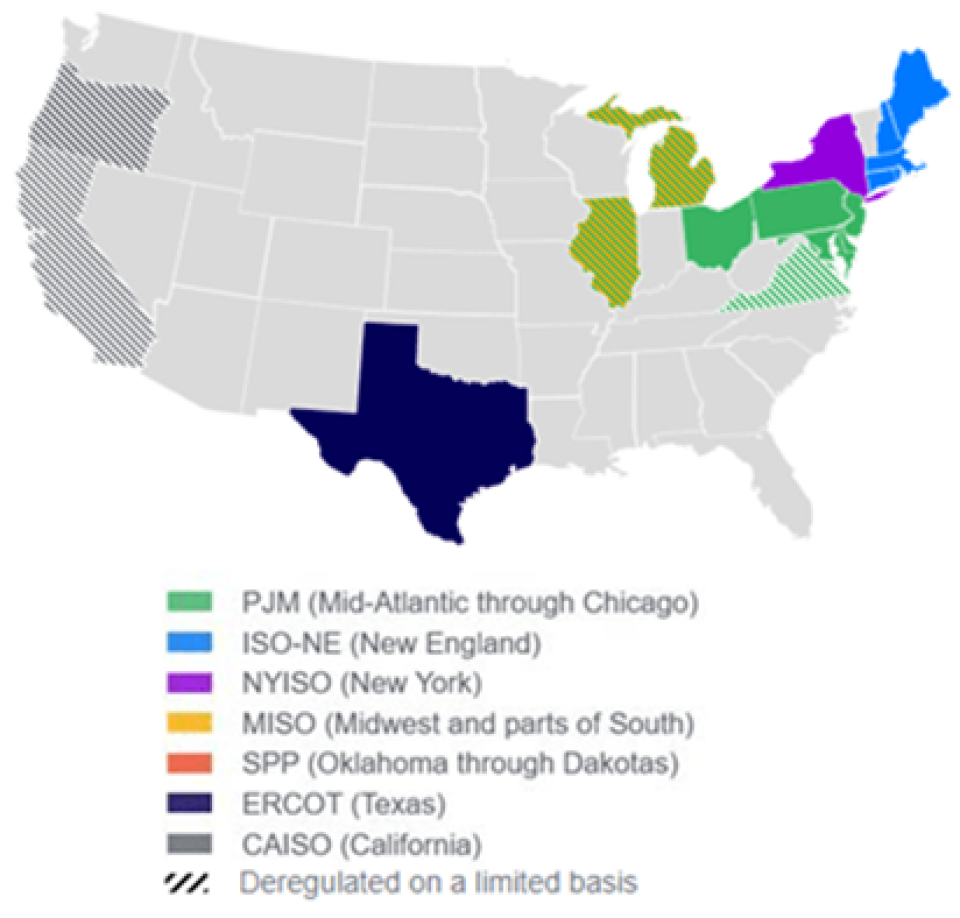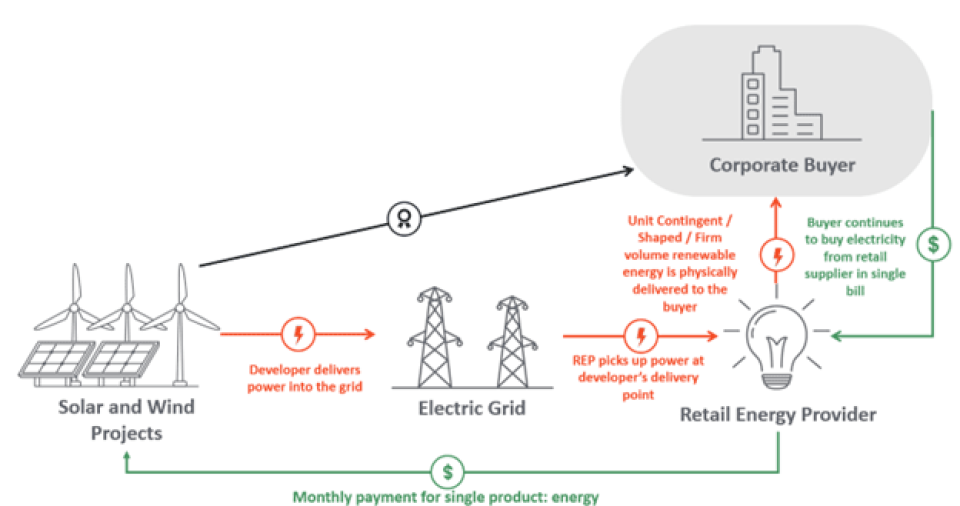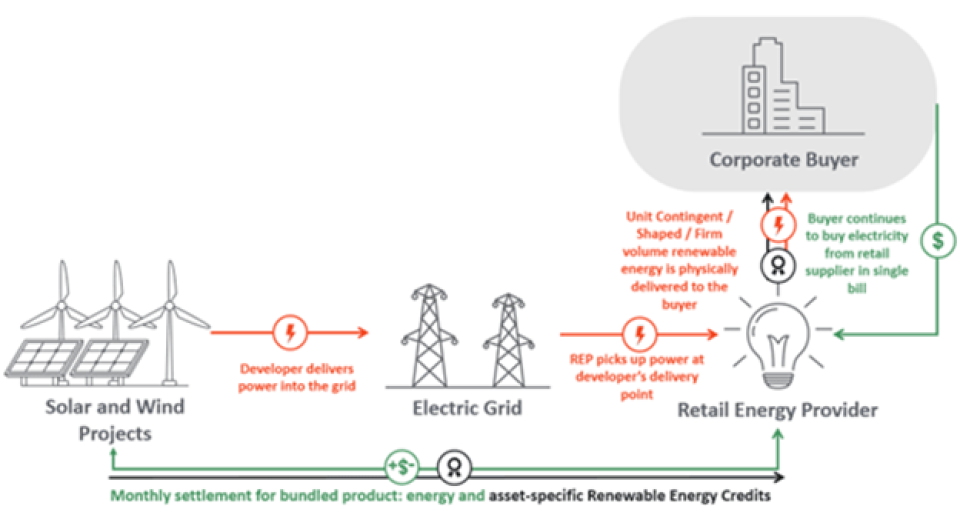Retail Renewable PPAs 101: Here’s What You Need to Know

Welcome to Trio Toolbox, a 101 learning series to help you navigate the clean energy transition. Created by our teams of subject matter experts, we provide you with the critical information, insights, and analysis you need across all things energy and sustainability.
What is a Retail Power Purchase Agreement and where is it available?
A Retail Renewable Power Purchase Agreement (Retail PPA) is an agreement that allows large energy consumers to source renewable electricity from a Retail Electricity Provider (retailer) of their choice, rather than being required to source energy from their default utility company.
The main difference between a virtual PPA and a retail PPA is the physical delivery of energy. The ability to have renewable energy delivered directly to one’s facility is known as third-party supply and is only available in the deregulated retail markets shown below:

How are Retail PPAs Structured?
Retail Renewable PPAs are generally structured in one of two ways: a sleeved PPA (multi-counterparty approach) or a retailer PPA (single-counterparty approach), and each comes with specific benefits and drawbacks.
Sleeved PPA
A sleeved PPA requires two contracts – a PPA between the offtaker and a renewable developer for the generation of energy, and a contract between the offtaker and the retailer for the delivery of energy. The renewable developer is responsible for generating the energy from the project specified in the PPA and delivering it to the retailer, at which point the retailer is responsible for firming and shaping the energy according to the offtaker’s load and delivering it to the specified facilities.
As a final step, the developer is additionally responsible for either transferring the renewable energy certificates (RECs) associated with the project’s generation directly to the offtaker, or retiring the RECs on their behalf.
Having to negotiate two separate contracts – one with the developer and one with the retailer – as well as running an RFP (Request for Proposal) to source renewable projects for the PPA, are unique challenges associated with the sleeved PPA approach. The graphic below depicts the flow of energy, RECs, and payments within the sleeved PPA structure:

Retailer PPA
The alternative structure, a retailer PPA, is the simpler of the two options, as it requires only one contract between the offtaker and the retailer. In this structure, the energy delivered to the offtaker’s facility comes from either the retailer’s existing portfolio of assets or from PPAs the retailer has signed with developers, which means that the offtaker does not need to run an RFP.
One potential drawback unique to the retailer PPA is the length of the contract. Retailer PPAs tend to have longer term lengths for the retail contract than the sleeved approach, typically ranging from 5 to 12 years. While the longer term can allow for greater budgeting certainty, it also results in the offtaker being locked into a longer contract than that of a typical retail energy deal.
The RECs associated with the delivered energy are transferred from the renewable developer to the retailer and retired on the offtaker’s behalf. The graphic below depicts the flow of energy, RECs, and payments in the retailer PPA structure:

Which offtakers benefit the most from Retail PPAs?
Retail PPAs work best for offtakers with significant load in a single deregulated region/state that has a strong renewable energy project pipeline. Aggregated load in a given region increases the likelihood that a retailer can deliver to all facilities. Offtakers with significant load in municipalities or co-operatives will have difficulty contracting for retail-delivered renewables, as third-party supply is highly restricted in those territories. Those with predictable load are more likely to receive competitive pricing from retailers due to lower costs associated with firming and shaping the energy.
Retailers offer a large variety of retail-delivered options that can be adjusted based on the type of sustainability claims an offtaker wants and the level of electricity market risk an offtaker is willing to take.
Because commercial aspects of retail PPA negotiations and evaluation of various retail offers can be challenging due to the complex structure of the product, working with an advisor like Trio can prove worthwhile.
As offtakers look to procure renewable energy and take steps towards their carbon emissions goals, retail PPAs are a solution worth exploring as one part of a company’s decarbonization portfolio.
